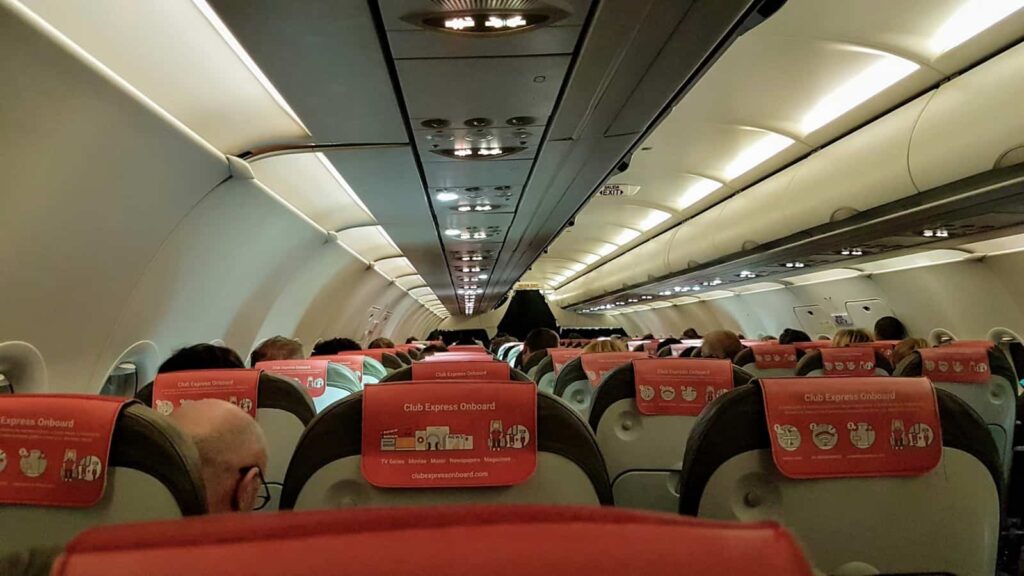12 Things Travelers Forget About In The Winter
12 Things Travelers Forget About In The Winter

When it comes to traveling in winter, there are a few things that many of us tend to forget. While it’s easy to remember to pack our cozy sweaters and look forward to charming snowy landscapes, some essentials slip through the cracks.
This guide is here to remind you of those often-forgotten items and tips that can make or break your winter travel experience. From the glare of the sun on snow to ensuring your rental car can handle icy roads, we’ll cover all the bases to help you stay prepared.
1. Packing sunscreen for snowy climates

Just because it’s cold doesn’t mean the sun won’t shine. Snow can reflect up to 80% of UV rays, raising your risk of sunburn. This is why packing sunscreen is a must. Opt for a broad-spectrum sunscreen with an SPF of at least 30.
Apply it generously on your face and any exposed skin, and reapply every two hours or immediately after sweating or towel drying. Don’t forget to protect your lips with a balm that contains SPF too. Keeping your skin protected from the harsh winter sun is key to enjoying your snowy getaway without discomfort.
2. Planning for shorter daylight hours

Winter days are shorter, so you’ll have less daylight to enjoy outdoor activities. It’s smart to plan accordingly. Check the sunrise and sunset times at your destination and plan your activities during the daylight hours. This might mean starting your day earlier but will allow you to maximize the natural light. Also, carry a reliable flashlight or headlamp in your travel bag in case you find yourself out after dark.
3. Winter-proofing their car rental

If you’re renting a car, make sure it’s equipped for winter conditions. Ask the rental agency if the car comes with winter tires and check if they offer chains or other winter gear. It’s also a good idea to have a windshield scraper and brush in the car to deal with ice and snow. Knowing how to operate the vehicle’s heating system and defroster is also important to ensure your visibility and comfort while driving.
4. Buying appropriate travel insurance

Winter travel often comes with its set of risks, from delayed flights due to storms to potential health issues from cold weather. Make sure your travel insurance covers these aspects. Look for policies that offer coverage for trip cancellations, interruptions, medical expenses, and emergency evacuations. Read the fine print to understand what’s covered and what’s not, so there are no surprises.
5. Bringing enough layers

Layering is key in managing the cold. Start with a moisture-wicking base layer to keep sweat off your skin, add an insulating middle layer, like fleece, to retain heat, and finish with a waterproof and windproof outer layer. This strategy not only keeps you warm but also allows you to remove layers if you get too hot, which is especially useful if you’re engaging in physical activities like skiing or hiking.
6. Accounting for road closures

Winter weather can lead to sudden road closures. Always have an updated GPS or map app that can alert you to closures and offer alternative routes. It’s also wise to check the local transportation department’s website for real-time updates on road conditions before you head out. This preparation can save you from getting stuck or significantly delayed.
7. Checking weather forecasts frequently

Weather can be unpredictable, especially in winter. Keep an eye on the weather forecasts in the days leading up to and during your trip. Apps and websites like the National Weather Service provide reliable, up-to-date information that can help you plan your days and dress appropriately. Being weather-aware helps avoid any unpleasant surprises.
8. Booking accommodations with heating

When booking your stay, confirm that your accommodations offer adequate heating. This might seem obvious, but not all places have central heating. Places with fireplaces or portable heaters can also add comfort to your winter stay. It’s also worth asking if there are extra blankets available or if you need to bring your own.
9. Packing hand warmers

Hand warmers are small packets that produce heat on demand and are excellent for keeping your hands warm during outdoor activities. They are inexpensive, easy to use, and fit easily into your gloves or pockets. Pack a few of these, and you’ll thank yourself when you’re out exploring in the cold.
10. Bringing waterproof footwear

Nothing ruins a day faster than wet and cold feet. Make sure your footwear is not only warm but also waterproof. Boots with a good grip are essential to prevent slipping on ice. Also, consider packing an extra pair of shoes in case one gets wet, ensuring you always have a dry pair available.
11. Having a backup travel plan

Winter weather can be unpredictable, and sometimes, despite your best plans, things can go awry. It’s smart to have a backup plan. This might mean having a list of indoor activities in case outdoor plans are not viable or knowing the cancellation policies for your bookings. A flexible attitude and an alternative plan can make unexpected changes less stressful.
12. Packing sunglasses for snow glare

The glare from the snow can be surprisingly bright, leading to discomfort and potential hazards while driving or skiing. Packing a pair of sunglasses can protect your eyes from UV rays and reduce glare. Choose sunglasses with 100% UV protection and, if possible, polarized lenses to minimize the glare.
We are Mary and Eric, the founders of Be Right Back, a blog dedicated to romance around the globe and at home.
We are Mary and Eric, the founders of Be Right Back, a blog dedicated to romance around the globe and at home. With over 10 years of experience in dating and traveling to romantic places, we share our favorite date ideas and romantic destinations to help couples level up their relationships. Having lived in and traveled through the USA, we also share our favourite things to do in the States.
With 70,000 monthly readers and 16,000 followers on social media, Be Right Back is your go-to resource for romantic trip ideas and couple activities at home and abroad.
